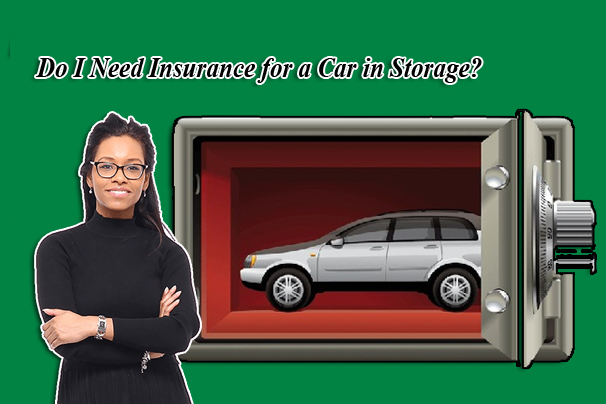Do you need insurance for the car that has been kept in storage? Or are you eyeing a property that needs work? It is legally not necessary for you to get auto insurance if your car is being stored. However, you might want to get some kind of car insurance coverage to protect your stored vehicle from unforeseen circumstances. This is because there is always a certain amount of inherent risk when it comes to damage or vandalism.

Do I Need Insurance for a Car in Storage?
Legally, an automobile that is being stored and is not being driven is exempt from insurance requirements. However, if you don’t have insurance, you will be liable for any costs incurred if the automobile is stolen, vandalized, or destroyed in an accident or weather-related incident. Maintaining insurance on your automobile, even to a reduced extent, while it’s being stored shields it from dangers other than collisions that happen while you’re driving.
What is Car Storage Insurance?
There are no plans offered by insurance firms, especially for automobiles that are kept in storage. Car storage insurance may be obtained through comprehensive coverage, which safeguards your vehicle in the majority of non-moving, non-driving situations. Together with liability insurance and collision coverage, this kind of coverage is typically included in full-coverage vehicle insurance policies.
Having some sort of auto insurance coverage is a smart idea when keeping a vehicle. Your automobile is still vulnerable to harm even if you aren’t actively driving it. Removing coverage can make it more difficult to pay for any necessary repairs when your automobile is taken out of storage.
While your automobile is being stored, you could encounter the following typical problems:
- Theft.
- Vandalism.
- Natural catastrophes such as fires, floods, and weather.
- Rat activity-related damage to belts or wires.
- Falling things from a storage facility, such as tree branches or other stuff.
A comprehensive insurance policy is the best option for automobiles kept in long-term storage because it often covers damage from all of the aforementioned sources. Your insurance will pay repairs up to the actual cash worth of your automobile, less your deductible, if any of the problems covered by your policy cause damage to your vehicle.
How Much Does Insurance for a Car in Storage Cost?
Since insurance companies base their prices on a variety of criteria, there is no set price for a comprehensive auto insurance policy. Among these are:
- The driver’s age
- Vehicle make, model, and mileage
- The record of the driver, including any tickets
- Insurance history, including prior claims
- The credit score of the driver (varying based on the state)
- Coverage level
- Allowable deductions
When calculating insurance prices, location is another crucial factor that businesses take into account. You might not be able to obtain a comprehensive-only insurance policy where you reside since each state has different minimum coverage requirements. You may need other insurance, such as uninsured motorist coverage.
In 2019, drivers in the US paid an average yearly comprehensive insurance premium of around $172, according to the National Association of Insurance Commissioners’ most current report on insurance rates.
Does My Car Need Insurance If I’m Not Driving It?
Most states don’t need you to carry insurance if your automobile is kept in storage, but if it is registered and tagged for use on public roads, you must carry at least the minimum amount specified by your state to register your car. Liability coverage, which pays for costs if your car injures someone else, typically makes up the minimum coverage.
How to Cancel Insurance for a Car in Storage
Stop your registration
Verify the requirements set out by your state’s Department of Motor Vehicles for autos kept in storage before canceling your insurance. To prevent a lapse in your auto insurance coverage, terminate your registration of your automobile before canceling your insurance. It could be necessary for you to submit an affidavit of non-use to your state. It can also be necessary for you to store the car in a secured facility and give in your license plates.
Resign from insurance
To determine if you can cease your auto insurance or if you must cancel your coverage, give your insurance provider a call. You may lower your coverage levels or cancel your policy with Progressive.
Get your car reregistered and reinsured
You must renew your driver’s license and auto insurance before you remove your vehicle from storage and start driving again. Before registering your vehicle, you must usually restore your auto insurance.
To find out what’s needed to register an automobile that is being brought out of storage, contact your local BMV or DMV.
How to Get Car Insurance in Insurance
Consulting with an insurance representative is your best option. They can advise on car storage status, insurance implications, and compliance with state and lender regulations. Moreover, you might need to do the following to qualify for auto storage insurance:
- Disconnecting the battery of the car.
- Keeping the car in a secured garage.
- Keeping the car at a secured facility.
The majority of insurance providers let you alter your coverage whenever you would like. Therefore, if your car qualifies, you can store it, and add or remove coverage choices at any time throughout the term. All at the insurer’s expense.



